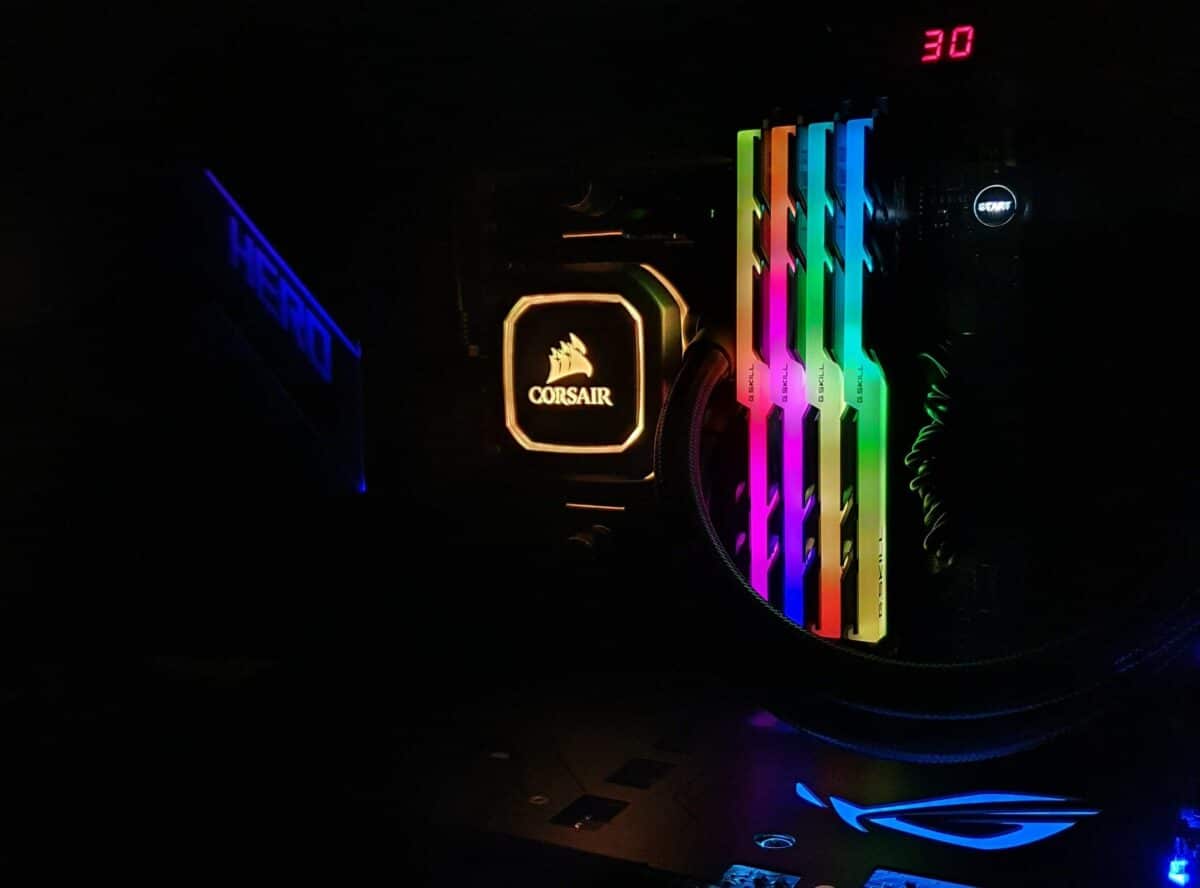I’ve used my i7-2600K since 2011, and I finally made the upgrade to a Ryzen 3950X. This post is about my experience switching and what I learned.
My build
I went with an ASUS Crosshair VIII Hero, 64 GB RAM, a Corsair H150i Pro for cooling, and Ryzen 3950X. I was unsure if 64 GB RAM would work well, but according to ASUS and G.SKILLs QVL, it should be fine.
The memory I went with was the G.SKILL Trident Z NEO kit (F4-3600C16Q-64GTZN), with four 16GB DIMMs of Samsung B-die memory. The Hynix version of the kit costs less, but I went with B-die as I wanted to play around with overclocking.
The kit worked flawlessly with DOCP/XMP enabled. I was even able to run it at 3733 MHz. By using the Ryzen DRAM calculator, I was also able to reduce latencies for a bit of extra performance.
I’ll probably tinker a bit more with it later and see if I manage to improve it further.
Software
The first thing I did was to update the BIOS and install chipset drivers. I had an issue with the BIOS-upgrade as I kept getting a “Selected file is not a proper BIOS” error.
The problem turned out to be that I had managed to download the BIOS for the Crosshair VIII Hero, and not the WiFi-version, as they’re not inter-compatible.
After getting terrible boost speeds, usually peaking at around 4.5 GHz, I realized that the chipset drivers I had downloaded from ASUSs website were quite old. I got the newest version from AMDs site and started seeing up to 4.65 GHz in single-threaded Cinebench R20. Still a bit off from the 4.7 GHz as advertised tho.
Performance
Cinebench R20 scores hover around 530 points for single-core and 9300 points for the multi-core test when the CPU runs within spec. Enabling Hyper-V resulted in a ~3.1 % performance penalty in Cinebench R20 for the multi-core test and ~1 % for the single-core test.
I wasn’t aware of how Hyper-V worked, so the performance drop surprised me. I first thought it was related to SVM, but disabling Hyper-V solved the issue.
Temperatures
Temperatures during Cinebench R20 are ~62.5 °C with the H150i Pro, and 64.7 °C when using the AIDA64 CPU stress-test.
I did some reading as I was unsure if it was worth it to replace the paste that comes pre-applied on the H150i. Some said there was a big difference, and others said there was no difference.
Even if there were a clear answer, I still didn’t know if Corsair still uses the same thermal paste as they did on earlier versions, so I decided to replace the stock paste with Thermal Grizzly Kryonaut.
Switching to Thermal Grizzly Kryonaut resulted in 1 °C lower temperatures in the AIDA64 CPU stress-test(from 64.7 to 63.7 °C) when stock.
How to ensure the best performance with the Ryzen 3950X
Are you not getting the performance or boost frequencies you are expecting out of your 3950X? Here are a few things you can check and try.
- Update your bios
Check the website of your motherboard vendor and download/install the latest bios.
- Install the latest chipset drivers
Download and install the latest chipset drivers from AMD’s website.
- Use the AMD power plan in Windows
When you installed the chipset driver, you also got an AMD power plan that helps with performance. Open your power plan settings and switch to AMD Ryzen Balanced.
- Make sure your memory runs at its rated speed
Ryzen does perform better with faster memory, so do at least check that you’re using it’s DOCP/XMP profile.
- Disable Hyper-V
Hyper-V does negatively affect performance. If you’re wondering why your performance is lower than others and you are using Hyper-V, then you know why.
- Check your temperatures
Ryzen CPUs do boost higher if its temperature allows it. Make sure you’re cooling is working properly. You can check temps using Ryzen Master or HWiNFO64.
